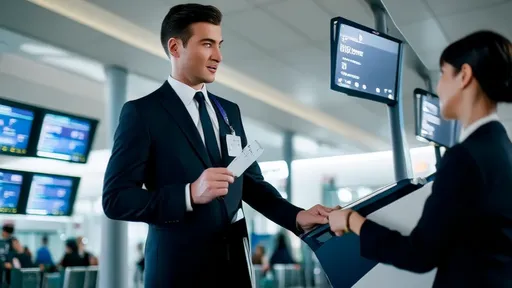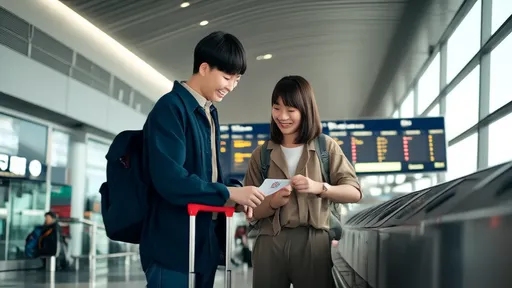The practice of airline overbooking has long been a contentious issue in the travel industry, sparking debates about consumer rights and corporate ethics. While airlines defend the practice as a necessary revenue protection strategy, passengers often find themselves caught in a high-stakes game where their travel plans hang in the balance. This complex interplay between business necessity and passenger welfare creates a fascinating game that rewards informed travelers who understand how to navigate the system.
Understanding why airlines consistently oversell seats requires examining their operational realities. Carriers face staggering financial losses from no-show passengers, particularly on high-volume routes where even small percentage differences translate to massive revenue gaps. The mathematical models used to predict no-shows have grown increasingly sophisticated, incorporating historical data, seasonal trends, and even specific passenger demographics. Yet despite these advancements, the system remains imperfect, occasionally leaving airlines scrambling when more passengers arrive than available seats.
When the dreaded overbooking scenario unfolds at the gate, a subtle power dynamic emerges between airline staff and affected travelers. Seasoned frequent flyers recognize this moment as an opportunity rather than a crisis. The initial compensation offers presented by gate agents often represent just the starting point in what can become a surprisingly lucrative negotiation. Airlines typically authorize their ground staff to incrementally increase incentives until enough volunteers come forward, creating a reverse auction where patience and strategy can pay dividends.
The psychology of volunteering plays a crucial role in these situations. Airlines carefully craft their compensation packages to appeal to different passenger priorities - some may value cash payments while others prioritize future travel vouchers or elite status benefits. Savvy travelers assess their own flexibility against the growing compensation offers, recognizing that later flights might yield better terms as departure time approaches and the airline's desperation increases. This calculated waiting game requires both nerve and a clear understanding of one's personal travel constraints.
Legal frameworks surrounding overbooking vary significantly across jurisdictions, adding another layer of complexity to these encounters. In some regions, regulations mandate minimum compensation levels that far exceed what airlines initially offer voluntarily. Knowledgeable passengers armed with awareness of these legal protections can negotiate from a position of strength, often securing settlements that include both the airline's voluntary incentives and their legally required entitlements. This dual-layer compensation structure remains one of the industry's best-kept secrets.
Frequent travelers develop sophisticated strategies to turn overbooking situations to their advantage. Some intentionally book flights historically prone to overbooking during peak travel periods, while others position themselves physically near gate agents to be first in line when volunteers are sought. The most successful practitioners of this art maintain pleasant but firm demeanors during negotiations, understanding that gate agents wield considerable discretion in how compensation packages are structured and distributed.
Technology has transformed the overbooking landscape in recent years, with some airlines now offering electronic auction systems where passengers can bid on compensation packages through mobile apps before reaching the airport. While this creates efficiency for airlines, it also allows strategic travelers to monitor developing situations and adjust their participation accordingly. The digitalization of these processes has created new opportunities for those who understand how to leverage these systems to their benefit.
The aftermath of successful overbooking negotiations often involves navigating a web of conditions and restrictions attached to compensation. Travel vouchers frequently come with blackout dates and routing limitations, while cash payments may be structured as reimbursements rather than immediate payments. Seasoned travelers meticulously document every interaction and commitment, recognizing that airlines' follow-through on compensation promises sometimes requires persistent follow-up. This attention to detail separates those who fully realize the value of their compensation from those who leave money on the table.
As consumer awareness grows regarding overbooking practices and compensation rights, airlines face increasing pressure to modify their approaches. Some carriers have begun experimenting with more transparent systems or alternative revenue management techniques that reduce reliance on overbooking. However, until the fundamental economics of airline operations change, overbooking will remain a reality - and for informed travelers, an occasional windfall opportunity hidden within the frustrations of modern air travel.
The delicate balance between airline profitability and passenger rights in overbooking situations continues to evolve. What remains constant is the advantage held by those passengers who invest time in understanding the system's mechanics, their legal protections, and the psychological dynamics at play during these high-pressure airport encounters. In the complex dance of airline overbooking, knowledge truly translates to power - and often, to substantial compensation for those who know the steps.

By /Jul 8, 2025

By /Jul 8, 2025

By /Jul 8, 2025

By /Jul 8, 2025

By /Jul 8, 2025

By /Jul 8, 2025

By /Jul 8, 2025

By /Jul 8, 2025

By /Jul 8, 2025

By /Jul 8, 2025

By /Jul 8, 2025

By /Jul 8, 2025

By /Jul 8, 2025

By /Jul 8, 2025

By /Jul 8, 2025

By /Jul 8, 2025

By /Jul 8, 2025

By /Jul 8, 2025